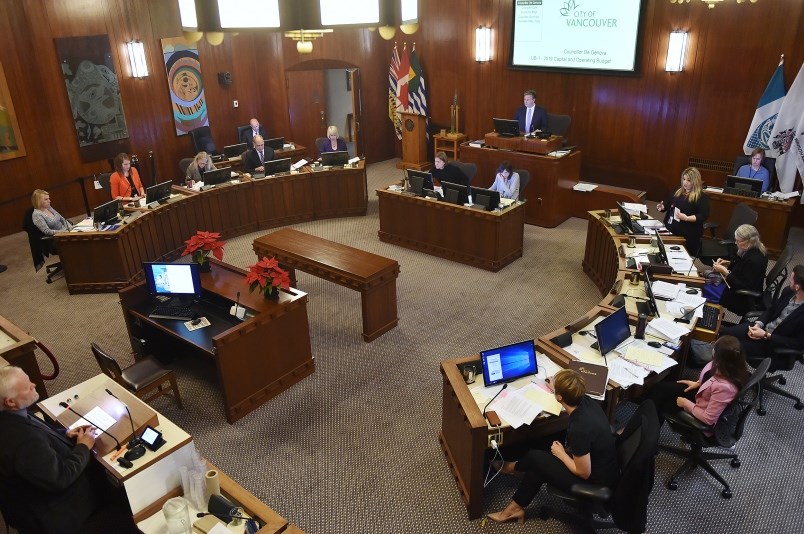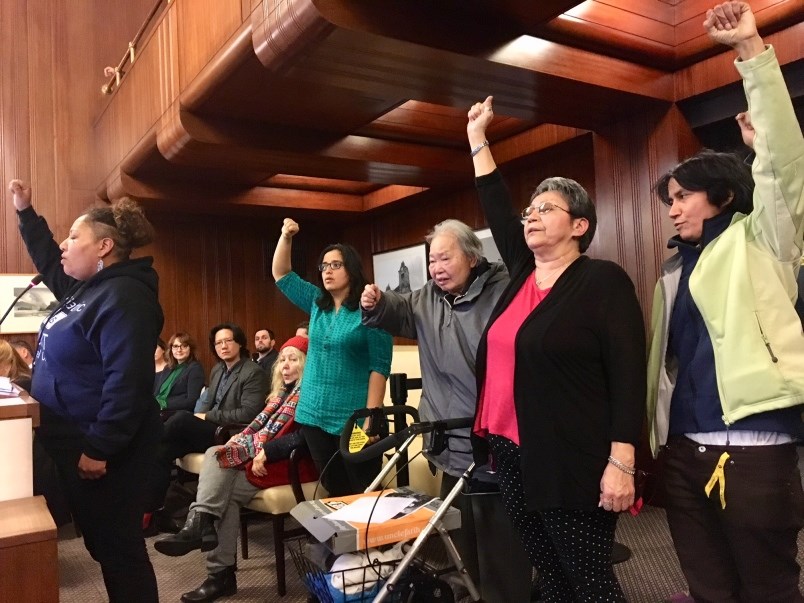I enjoy politics and have been known to get excited about an election campaign, some of the policy stuff and anytime there is a sizzler of an exchange between political foes.
But I’m quite confident I would never say this:
“I’m really excited, actually—yes, I know it’s crazy to get excited about parliamentary procedure…”
NPA Coun. Sarah Kirby-Yung said that.
I’ll finish off her quote near the end of this piece, but first some insight into what excites her about parliamentary procedure.
Council unanimously approved Wednesday a series of recommendations that aim to overhaul the public engagement side of things at city hall.
At first reading, it may seem like some inside baseball stuff, which is partly true.
But the biggest move in what is being called a trial or pilot project is that it aims to positively affect you and me in terms of efficiency: speakers will now have a more definite time when they can take their turn at the microphone.
At least that’s the goal of the two-month experiment, which begins next month. And that’s a big deal because right now it’s a gong show, said the city hall scribe, speaking from experience.

The current system has council meet on a Tuesday. This is called “regular council.” And if there is a report or a motion brought forward where a citizen has contacted city hall to register to speak to said report or motion, that item is then bumped to Wednesday’s “standing committee on city finance and services.”
Most speakers take this in stride. But when they show up on a Wednesday at 9:30 a.m. to speak, council has other reports and business on that committee agenda to work through before getting to what they call “unfinished business” from the previous day.
And if one or two of those reports eats up the morning, and council then breaks at lunch and meets in-camera until 3 p.m., those speakers who showed up at 9:30 a.m. would need to return at 3 p.m. But even then, council may not be finished with the items of the committee agenda.
Throw in a dinner break and a few recesses here and there and, well…gong show.
Fun fact: Since the new council's first meeting in the fall, an average of 32 speakers registered to speak at the Wednesday committee meeting.
I’ve seen speakers wait all day and finally get a turn at the mic in the late evening. I’ve also seen speakers give up and leave, leading some critics to say this is exactly what council intended, particularly during a controversial issue.
Others find out late in the day that council has decided to bump the report or motion to another week.
I’ve come up with a term for this: democracy by exhaustion.
Which also leads to journalism by exhaustion.
In today’s 24/7 world of feeding the digital beast with stories, most reporters don’t have time to stick around for two days and nights—either at city hall or watching via livestream—and chase one story.
Public hearings are a different story and, depending on the issue, can go on for several nights. That’s expected and not what we’re discussing here.
So what can we expect under what city staff is calling a “council meeting procedures pilot project?”
Here are the key changes you need to know:
- Citizens wanting to speak to a report or motion on a Tuesday will now get to speak on the same Tuesday, as this quote from a city staff report outlines:
“The recommended pilot to hear speakers at regular council is intended to provide the public with greater certainty of when they will be heard, as they will be heard on the day for which the agenda item they wish to speak to is listed [provided the council meeting lasts one day].”
Kirby-Yung also successfully added an amendment that will have any speakers bumped from Tuesday to be heard between 3 p.m. and 10 p.m. the following day.
- The speaking time for citizens will be reduced from five minutes to three minutes.
That’s a bit of good news/bad news.
The good news is that it will prevent the usual inarticulate suspects from droning on about an issue, often times unrelated to the subject. The bad news is some of the more articulate, interesting speakers will be cut short.
- Council questions to speakers will also be reduced from five minutes to three minutes.
Apparently, a survey was done of 866 citizens between Dec. 14, 2017 and Jan. 31, 2018 with “many respondents in favour of limiting the type and number of questions asked by members of council.”
- And, finally, city staff will work on releasing public agendas earlier.
Currently, they go up on the city’s website Wednesday and Thursday for the following Tuesday and Wednesday meetings. Staff has been advised by council and the public that this schedule does not provide ample time to review the reports on the agenda, the report said.
Now to finish off Kirby-Yung’s quote I began at the top of this piece...“but it will actually give us a chance to make our lives better so we can spend less time on procedure and more time on the actual content of what it is we’re talking about.”
Green Party Coun. Adriane Carr had this to say: “Our intent of this council is to really provide more certainty and clarity to members of the public who sign up to speak…and let’s hope this trial is one that works.”
The trial will run in April and May when council reconvenes after spring break.
Reporter’s two cents: It would also be helpful to see motions and changes to them captured in the livestream. Being able to view the livestream immediately after a council meeting finishes—like the Vancouver Police Board does—would also be great for those who can’t tune in live and may be at an ice rink, soccer field or in the grips of a man cold.
@Howellings



